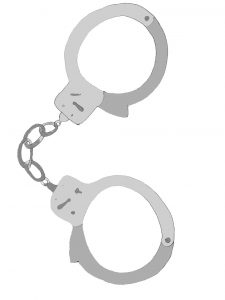Prop 57 can combat the prison pipeline
As the November elections veer closer, the topic on most people’s minds is the presidential race. However, in California, there are many important issues to vote on in down ballot elections, including the state’s stance on the controversial Citizens United v. FEC case, bilingual education in public schools and a repeal of the death penalty — to name a few.
One proposition that will have a tremendous impact on the criminal justice system, public safety and the state of California’s economy is Proposition 57. The ballot measure, a proposed reformation of California’s parole system, aims to address the court order to reduce the costly prison population. The primary component of this ballot measure is that judges, rather than prosecutors, can choose whether a juvenile is tried as an adult. This proposition absolutely must be passed, both for fiscal reasons of practicality and obvious moral grounds.
According to the California Office of the Attorney General, by reducing prison population through increased paroles granted, tens to hundreds of millions of dollars would be saved annually. This proposal should please even the fiscal conservatives who constantly proclaim their disdain toward the use of tax dollars for public good. According to the Religious Action Center, In 2014, it was reported that California spends nearly 10 percent of its general fund on our prison system. Taxpayer money will no longer be poured into the multimillion-dollar prison industrial system. Instead, the system of reformation is projected to limit juvenile prison convictions and cycles of criminalization beginning at a young age. This piece of legislation is essential in promoting rehabilitation in California and reducing cycles of incarceration which debilitate our youth.
Prosecutors and criminal justice officials from all over the state are weary of parole reforms because of the potential for rapists, arsonists or other violent criminals to be released under this policy. Among the dissenters include Breitbart News Network, the online news forum where current Trump Campaign CEO Stephen Bannon is executive chairman. One columnist begins by touting that violent crime has increased 10 percent in the past year and that this ballot measure will only worsen the situation by allowing the early release of violent criminals. This is simply not true.
To quote the report he cited, “In 2015, the total violent offense arrest rate increased 1.0 percent.” And in fact when compared to violent and property crime over time, rates are 2.9 and .4 percent lower than 2010 and about half of what was recorded 20 years ago.
According to the report, the most outstanding data shows that violent crime is not rising, but rather hate crimes have increased exponentially more, particularly events involving religious bias. Hate crime events increased over 10 percent in 2015, and events involving religious bias increased almost 50 percent. Among increased targeting groups are Muslims, Jews and Hispanics. Consistently, hate crimes with anti-black motivations continue to have the highest rates. These statistics are truly appalling.
The issue is not violent offenders, but the increasing normalization of bigoted and racist actions against African Americans, Latinos, Muslims and every other targeted minority — who, not by chance, are disproportionately represented in the prison population.
To name a few endorsees of the ballot initiative, The Bakersfield Californian and the San Francisco Chronicle both published statements of support for the proposed legislation. As the San Francisco Chronicle said in their article recommending Yes on Prop 57, “It’s not a get-out-of-jail free card” but rather an opportunity for inmates to get back their life and return to become valued members of society.
Under this legislation, criminals will still serve their time, but they will not have to pay for it for the rest of their lives. While serving time they will be able to participate in programs including college curriculum, drug treatment and more intensive mental health programs. Not only will inmates benefit from these opportunities, they will also be more incentivized to participate if they receive credit that allows them to go before the parole board. The prospect of getting parole rather than serving a full sentence is not only attractive to the inmate, but should be for every taxpayer in California.
Additionally, if the measure passes and judges are given the choice to choose to try 14- and 15-year-olds in court as juveniles rather than adults, judges have the opportunity to truly change the fate of these youth. If tried as a juvenile, the offender can go through rehabilitation and turn their life around. They will not live with the stigma of a prison record for the rest of their life. But if they are tried as an adult, youth are thrown into a system which few can recover from.
California has a serious decision to make. We must support progressive rehabilitation of the community, rather than allowing non-violent offenders waste their lives in prison.

